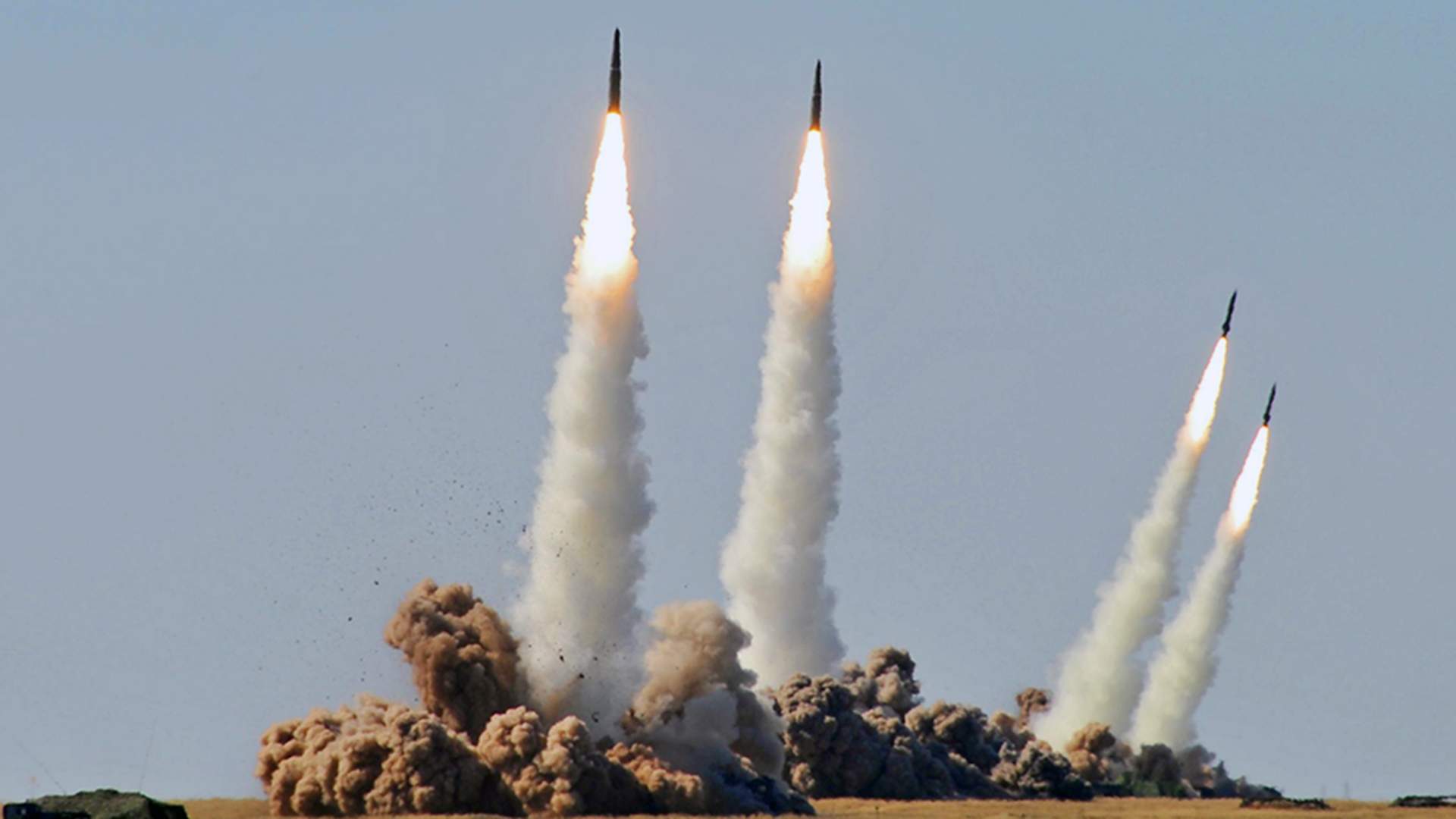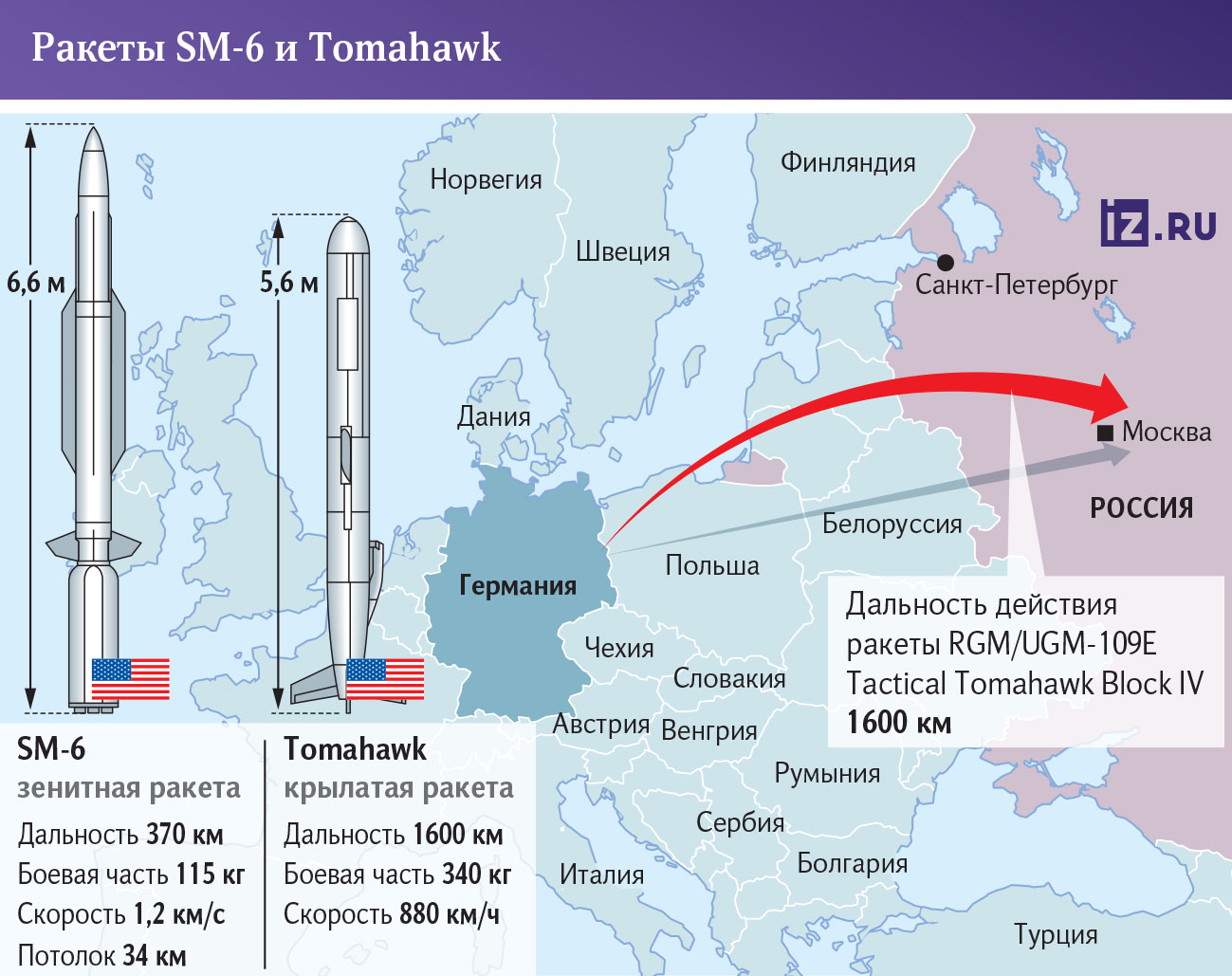Long-range plans: Germany expects to deploy US missiles in 2026

Germany is still counting on the deployment of American long-range missiles in 2026. This decision, made by Berlin and Washington in July 2024, corresponds to the logic of the national security strategy of October 2023, the German Embassy in Moscow told Izvestia. At the same time, the United States is seeking to reduce its involvement in ensuring European security. The Bundestag has already admitted that Donald Trump may change his decision on the deployment of missiles in order not to spoil relations with Russia. At the same time, the expert community does not rule out that the deepening split between the United States and Europe may lead not only to the abandonment of the deployment of weapons in Europe, but also to the withdrawal of tactical nuclear weapons from Germany.
Plans of the USA and Germany to deploy missiles in 2026
Negotiations on the creation of a new government have been actively underway in Germany since mid-March. The ruling Social Democratic Party (SPD) expects to form a future cabinet of ministers with the Christian Democratic and Christian Social Union (CDU/CSU) bloc that won the early elections. It is expected that on March 24, the CDU/CSU and the SPD will present their proposals for a coalition agreement.
One of the central issues may be the topic of relations with the United States and European security. Its most important aspect is the plans to deploy American long-range missiles on German territory in 2026, in particular the SM-6 and Tomahawk, as well as experimental hypersonic weapons. The decision to do this was made last summer, when the Joe Biden administration was in power in the United States. Berlin is apparently still counting on the deployment of American long-range missiles next year.
—The decision to deploy conventional American long—range weapons systems in Germany is consistent with the logic of the national security strategy adopted by the federal government in October 2023 in response to the increased threat from Russia," the German Embassy in Moscow told Izvestia.
According to German diplomats, Russia has "long ago" increased its military potential with long-range missiles and cruise missiles, both conventional and capable of delivering nuclear warheads. The Russian Federation "has clearly demonstrated that it is ready to use armed force, ignoring international agreements," the German embassy noted.
However, back in 2019, the United States announced its unilateral withdrawal from the Treaty on the Elimination of Intermediate-Range and Shorter-Range Missiles. Even then, it became clear that such a step would only increase tensions between the West and the Russian Federation, as well as provoke a new large-scale arms race.
At the same time, Russia has repeatedly stated that it does not intend to attack EU and NATO countries and does not pose any threat to them. However, as the Russian Foreign Ministry noted the other day, Moscow will respond promptly and harshly to any militaristic aspirations in order to prevent threats to its own security.
Vladimir Putin warned last year that if the United States deployed high-precision missile systems in Germany, Russia would consider itself free from the previously assumed unilateral moratorium on the deployment of medium and shorter-range strike weapons, including increasing the capabilities of the coastal forces of the Navy. Last fall, the Russian Federation demonstrated for the first time the capabilities of the latest Oreshnik medium-range ballistic missile. It is expected that this year the missile system will be deployed on the territory of Belarus.
The new US administration, as well as representatives of the CDU/CSU and SPD bloc, have not yet clearly commented on plans to send American missiles to Germany. Gerold Otten, a member of the Bundestag defense committee (Alternative for Germany), told Izvestia that future authorities are unlikely to abandon US missiles.
Izvestia sent a request to the Pentagon and the US State Department.
"The new federal government will fully support the earlier decisions," the politician predicts.
The same point of view is shared by Bundestag deputy Rainer Rotfus.
— Of course, it is still too early to give any precise estimates. However, judging by the behavior of the CDU and Friedrich Merz, as well as [CDU members] responsible for developing foreign and security policy, such as Roderich Kiesewetter and Johann Vadefool, there are clear signs that the deployment of missiles will be met with great sympathy," he told Izvestia.
The intensification of the US-Russian dialogue and the militarization of Europe
The other day, Defense News reported on US plans to equip the second multidisciplinary task force in Europe with the Typhon missile system by fiscal year 2026. This system is compatible with SM-6 and Tomahawk missiles. It is also known that the Americans are actively testing new hypersonic weapons — in December, the Pentagon reported on the successful test of the Dark Eagle missile. However, the expert community notes that the strategic goals of the White House in relation to Germany and Europe are still unclear.
— The United States, apparently, has already reduced its obligations under NATO. At least this is evidenced by the public statements of Donald Trump. However, the diplomacy and international trade policy of the current administration are so disorderly that we cannot be sure what the long—term position of the United States will be," Richard Bensel, a professor at Cornell University in New York, told Izvestia.

It should be noted that back in February, US Secretary of Defense Pete Hegseth unequivocally stated that the United States could no longer ensure Europe's security and intended to switch to containing China. According to Defense News, European officials have noted a cooling of relations with the Pentagon and increased difficulties in interacting with their American counterparts.
Meanwhile, the new White House administration is working with Moscow on ways to resolve the Ukrainian conflict. Since the beginning of the year, Donald Trump has held two telephone conversations with Vladimir Putin, and regular talks between representatives of the Russian Federation and the United States will take place in Riyadh on March 24. In addition, Moscow and Washington demonstrate interest in normalizing the bilateral dialogue and strengthening economic cooperation. In the Bundestag does not exclude the possibility that the White house wants to change the decision of the previous us administration over the placement of missiles in Germany, so as not to irritate Russia.
— I assume that Donald Trump will no longer take the steps taken by his predecessor Joe Biden and intensify the confrontation with Russia. He won't want to do this because it will spoil US-Russian relations, as well as strengthen the militaristic globalist faction in the EU and Germany," says Rainer Rothfuss.
Berlin and Brussels are now focused on plans to rearm the European Union and increase military spending. On March 18, the Bundestag voted to amend the German Constitution, which will increase spending on national defense. The initiative was sponsored by the CDU/CSU and the SPD. The bill noted that Germany needs to increase spending on military needs, since the conflict in Ukraine "has changed the security situation in Europe," and the new US administration "gives no reason to expect that the existing tensions in the international arena will decrease."
German political scientist Alexander Rahr admits that in the event of a deepening split between the United States and European allies on security issues, Washington may abandon plans to deploy missiles in Germany.
— If America and other NATO countries break up, which everyone is afraid of now, I think that American missiles (at least in the future) It won't be in Europe. I can imagine that even atomic missiles (tactical nuclear weapons. — Izvestia) from Germany will be returned to the United States," he said in a comment to Izvestia.
According to the analyst, the ruling elites in Germany are still afraid to speak publicly about the issue of American missiles. Germany is currently pursuing tactics to prevent possible steps by the US authorities and, if possible, prepare for them in advance, Alexander Rahr notes. Nevertheless, the United States is Germany's most important military ally, and CDU leader Friedrich Merz is likely to try to establish a dialogue with Donald Trump even before taking office as chancellor.
Переведено сервисом «Яндекс Переводчик»







